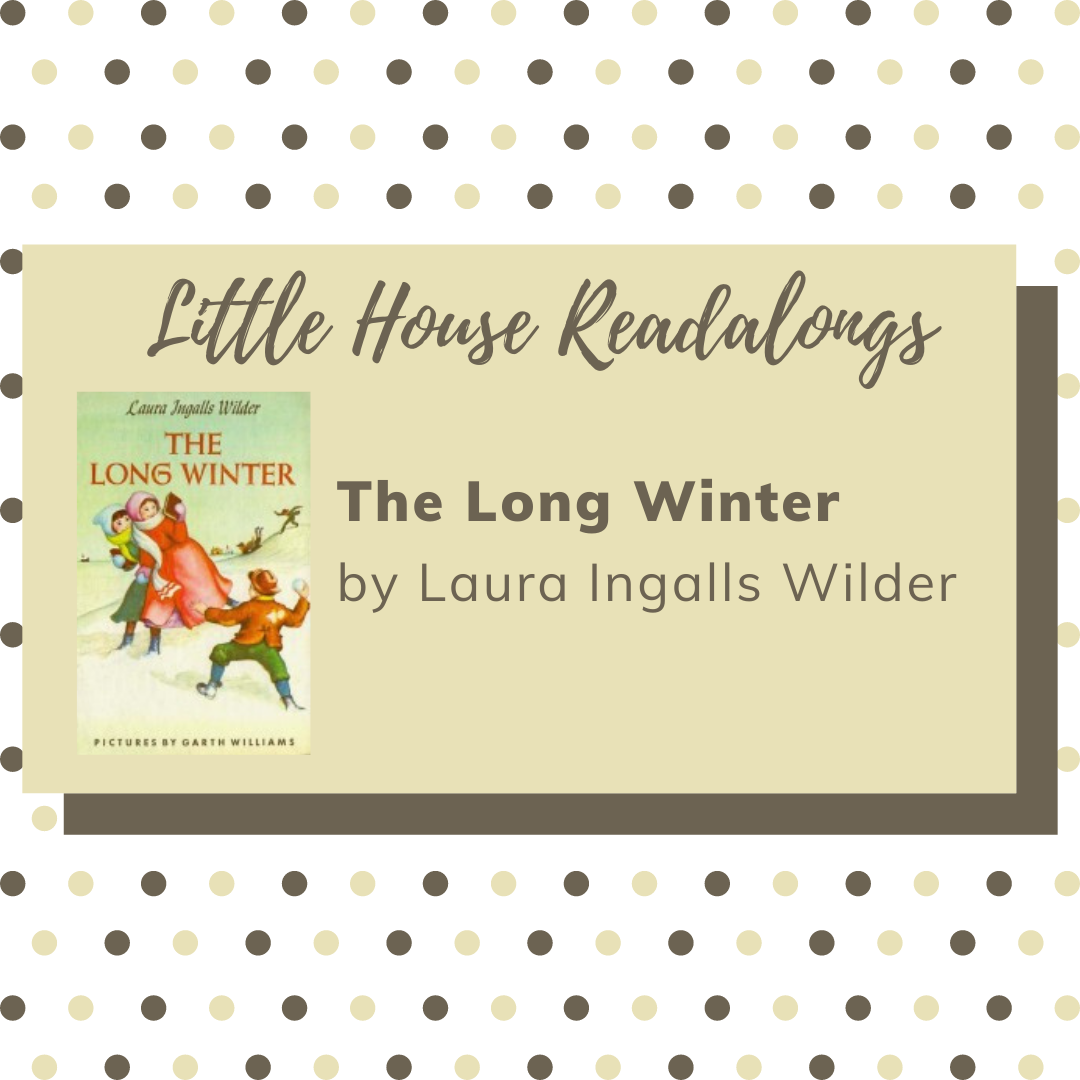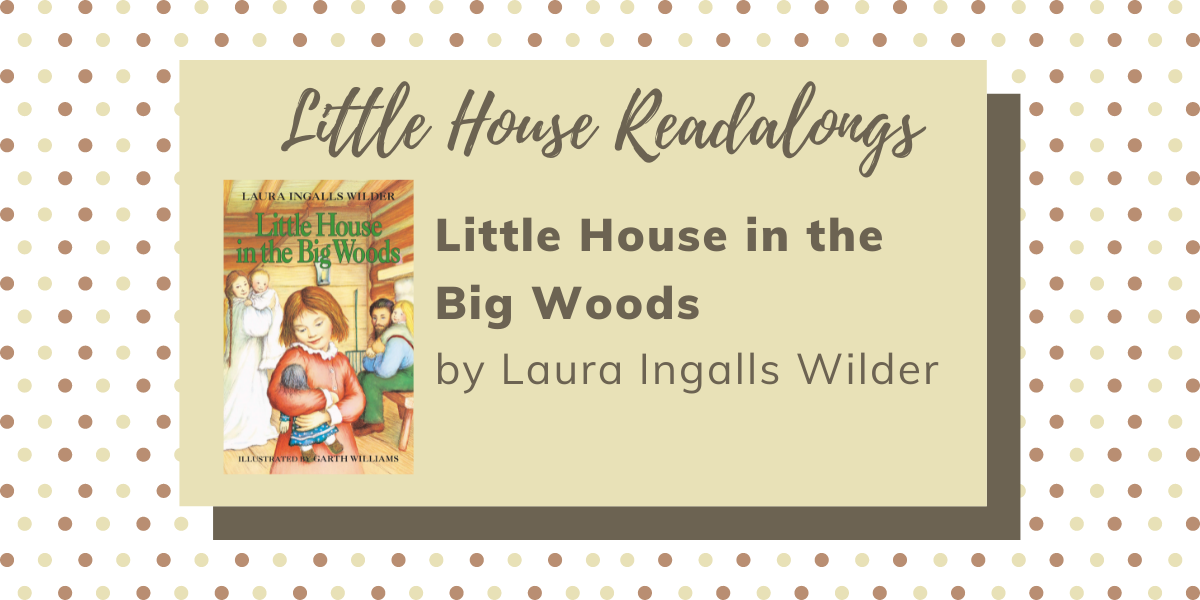
We’re back at the feed store. Blizzards leave a lot of time for thinking, and Almanzo spends his days doing just that — not cracking jokes or even seeming to notice his chores as he does them. Even more shocking, he sits back and lets Royal make the pancakes. Sacre bleu!
I love the brotherly discourse here. When Manzo finally offers up his thoughts to Royal, Royal quips that “It ought to be something worthwhile, the time you’ve been spending on it.”
Almanzo goes on to tally up the people in town, the mouths each household has to feed, and the dwindled food supplies. He uses Pa as his first example. That family is starving, Almanzo deduces. So, Royal says, you selling your wheat? Not on your tintype, Almanzo replies. (I’ve never heard that expression elsewhere — have you?) He continues to deduce, concluding that if the blizzards stop in March, the townspeople are going to starve unless he sells his wheat. If the blizzards don’t stop until April — the way the Indian predicted — they’ll starve even if they have eaten his wheat.
And the point? Royal prods. Almanzo’s point is that someone has to go get the wheat south of town.
You get the sense, here, that Almanzo is happy with the decision he’s made. And the decision is that he will go. Royal is not. Almanzo quotes Father Wilder to Royal (“Be sure you’re right, then go ahead”), and Royal shoots back a favorite saying of their mother’s (“Better be safe than sorry”). Almanzo still seems cheerful. He’s a man making a grown-up decision that he’s thought about and thought about, and his big brother can’t make him change his mind. Royal plays the parental card, wanting to know what he’s supposed to tell their parents when Almanzo gets lost in a blizzard, as he’s bound to on this fool trip. Almanzo advises him to just say he had nothing to do with it.
In my favorite line of the chapter, “Don’t go off half-cocked, Manzo,” Royal says. Almanzo assures him that he’s not.
Then it’s Royal’s turn to think, chewing his pancakes. Finally he lays down his knife and pushes back his plate. FINE! He’ll go with Almanzo.
This gets Almanzo’s dander up: “See here! We can’t both of us go!”
Thus ends the chapter. I’ve always wondered about this chapter’s end. It’s not an odd way to end a chapter, but it’s an odd way for Laura to do so. By Little House standards, it feels unfinished. Do any of you get the feeling that this chapter has Rose’s fingerprints all over it?


Comments7
Yes, I have heard not on your tintype many times. I have also heard a derivation of it–not on your tinny tin tin. I’ve heard it in movies and both of my great grandmothers said it from time to time.
I’ve always heard it as “Not on your chinny chin chin”
Does anyone else wonder how Cap became involved? I’m sure he was dependent on quite a bit since his mother was a widow.
I do enjoy the comments between Almanzo and Royal. Royal doesn’t seem as perfect an older sibling as Mary.
I will have to take more notice of the endings of the chapters.
I took it as like going to war on behalf of the others less able.
I don’t find the ending that odd… but this talk of “tintype” makes me think how Laura never wrote of the experience of having their photograph made. There’s a picture with her and Mary and Carrie dated sometime shortly after the long winter – the one where the older girls are in the checked dresses – I wonder why this never made it in to her stories, since getting pictures made back then was supposed to be such a big deal?
BUT then again maybe it wasn’t that exciting. I guess if I were to write my memoir (not that I would) I wouldn’t bother to talk about “And then in Spring of ’95, since the price of pictures by the school photographer was too high, we went to Sears to get my picture taken.” LOL It wouldn’t cross my mind… but with her knack for describing amazing inventions and all back then, it’s kind of curious.
Ever read Cheaper By The Dozen, the stories about the dad taking the kids’ pictures with the huge lash devices? Funny, funny stuff – and interesting!
I didn’t think the ending of the chapter was unusual. It implied that Almanzo had taken his stand and would argue with Royal until he won. im sure the argument raged on for a while, maybe through the next day. It would have seemed less likely that they debated it only a few minutes. it was a tremendously big, life and death decision, really.
Lol, yes, not only have i heard “Not on your tintype,” i grew up on it and use it once in awhile. When i was growing up, i used to asked my mother if she’d done certain things that Laura wrote about in her books. After awhile, she got wise and would say, “No, the Indians wouldn’t let us.” So many of their experiences and sayings were similar.
There is a section in The Child That Books Built by Francis Spufford about The Long Winter and the complex reasoning Almanzo had to go through to convince himself to go get the wheat. He read The Ghost in the Little House and believes this book was definitely influenced by RWL.
Spufford visits De Smet, ND for Independence Day, too, and meets a 90-year old man who was the pallbearer at Grace’s funeral.
Comments are closed.